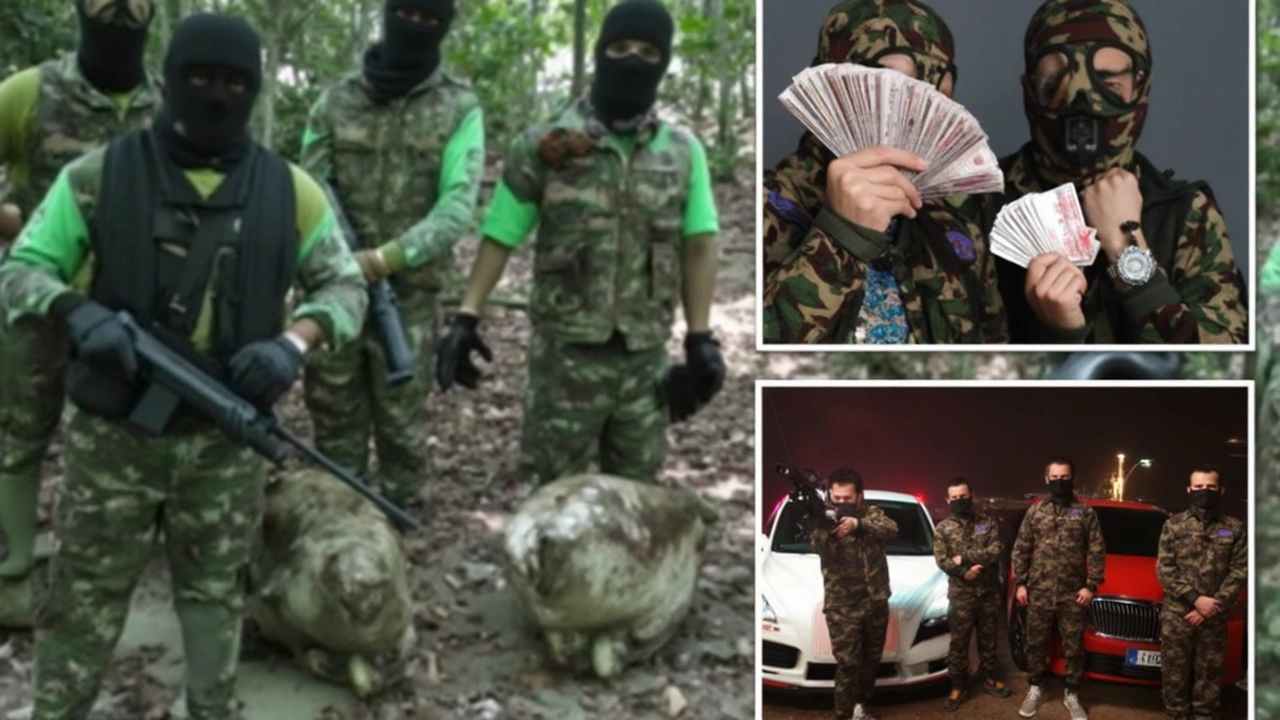How Albanian Gangs Changed the UK's Cocaine Scene
Until a few years ago, the UK’s cocaine market was a messy battle dominated by local gangs and traditional traffickers. But that’s all changed. Now, Albanian gangs have muscled their way to the top, grabbing control of a £5 billion market and shaking up the underworld. Their secret? They skipped the middlemen, flying straight to the source: South American cartels in cocaine powerhouses like Ecuador.
Instead of relying on complicated old-school networks, Albanian organized crime bosses went directly to South American producers. These bold negotiations gave them better prices, stronger product, and a seat at the table with some of the world’s most dangerous criminals. The drugs move into Europe through sea ports in Belgium and the Netherlands, from where the UK is just a lorry ride away. That’s how they flood streets with cocaine, and why prices keep dropping and purity keeps climbing.
The Power of Community—and Crime
You might wonder how Albanian criminal networks got such a tight grip, and it’s not just about quick deals and ruthless efficiency. The gangs smartly used the Albanian diaspora—especially communities that settled across the UK during new migration waves. Marginalized people, particularly in low-wage jobs like construction or farm work, found themselves being recruited for more profitable (and riskier) work: smuggling, selling, and laundering money.
Building up these “satellite” communities helped the gangs blend in and expand across Britain. Their operations run through networks called 'county lines', where kids and vulnerable adults get roped into moving drugs from cities to rural towns. This structure makes the real bosses hard to touch.
But law enforcement is fighting back. In 2021, a massive police operation ended with 1,468 arrests and the seizure of £2 million in drugs and cash. It barely scratched the surface, but it did show just how wide the web goes.
- Luan Plakici—infamous as the 'Vice King' for trafficking women into the UK sex trade—became a case study in just how diverse Albanian organized crime can be.
- Erald Mema and Fatjon Dauti stood out as major cocaine movers, demonstrating how the gangs split their focus between human trafficking and drugs.
Authorities say these organizations are frighteningly good at making alliances with other criminal networks, even among rivals, which helps them grow fast and dodge police. They hide money by pouring illicit profits into property deals, and use encrypted apps to keep secrets from investigators.
One recent high-profile bust revealed Bujar Cozminca’s £8 million operation. Here, drug money didn’t just buy fast cars and parties—it helped transform the Albanian capital, Tirana, filling it with flashy new towers and bringing it an underworld reputation as 'miniature Dubai.' The riches flowing in from these cocaine deals have made the city a magnet for showy displays of wealth, property bubbles, and whispers of corruption.
The combination of violence, organized recruitment, and open partnerships with cartel bosses puts Albanian gangs at the top of the UK’s criminal food chain. The National Crime Agency openly calls them the country’s most strategic and ambitious traffickers. With encrypted chat apps and an eye for vulnerable recruits, they show no signs of slowing down, keeping both police and rivals guessing their next move.
